US Iran Envoy Not Sidelined, Set To Brief Congress On Nuclear Talks
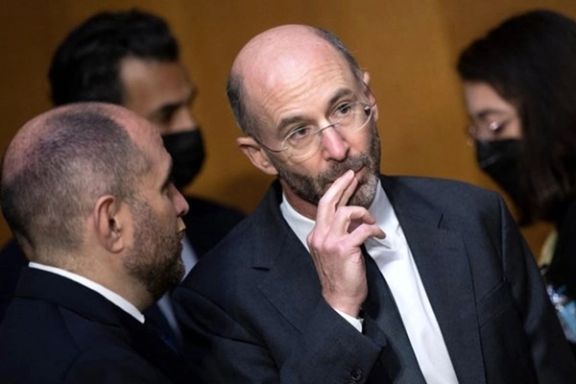
A source close to the US nuclear negotiating team has rejected rumors about Washington’s Special Envoy Robert Malley being sidelined.

A source close to the US nuclear negotiating team has rejected rumors about Washington’s Special Envoy Robert Malley being sidelined.
The source told Iran International’s correspondent on Tuesday that the rumors are lies and disinformation aimed at undermining diplomacy.
“Mr. Malley will brief members of Congress on the state of Vienna talks at a closed door briefing tomorrow [Wednesday] and will continue his efforts to restore the JCPOA and bring Americans back home,” the source added.
The Times of Israel Monday quoted a “senior Israeli official” travelling with Prime Minister Yair Lapid in Berlin who said talks to revive the 2015 Iran nuclear deal, the Joint Comprehensive Plan of Action, JCPOA, are dead. The official said the Israeli delegation had given “information to the Europeans that proved the Iranians are lying while the talks are still happening.”
The official had also claimed that the talks were “no longer in Malley’s hands,” with the US special envoy shunned aside. The State Department subsequently denied that Malley had eased out or that the US position had “toughened,” the Times of Israel reported.
US Secretary of State Antony Blinken reiterated Monday that it was not possible to give a timeline for the JCPOA talks. US officials, including Malley and Blinken, have said they will continue efforts to revive the 2015 agreement as long as this suits US national interests and has non-proliferation benefits.

Three family members of executed Iranian wrestler Navid Afkari were arrested on Tuesday as they wanted to go to his grave for the second anniversary of his execution.
Navid’s sister Elham Afkari, along with one of the four brothers, Habib, and his wife were arrested by security forces who have blocked roads leading to the grave.
Navid Afkari was arrested along with two of his brothers Habib and Vahid during protests in Iran in 2018 and was executed despite international campaigns to save his life. His other brother Saeed said in August that Vahid has been threatened with death in prison in Shiraz.
Habib Afkari was freed after months of solitary confinement in March, but Vahid is sentenced to 54 years and 6 months in prison and 74 lashes and is held in solitary confinement.
On Tuesday, Saeed confirmed the arrest of his family members and also released an audio recording from one of the hearings of Vahid that proved he was not given a fair trial. He initially received a death sentence for an “act of war against God” for his participation in protests, the authorities later charged him and his brothers with the murder of a government employee.
Amnesty International said in June 2021 that Vahid and Habib were being subjected to torture and other ill-treatment in Adel-Abad prison in Shiraz, and were denied access to adequate healthcare, fresh air, telephone calls and face to face family visits.
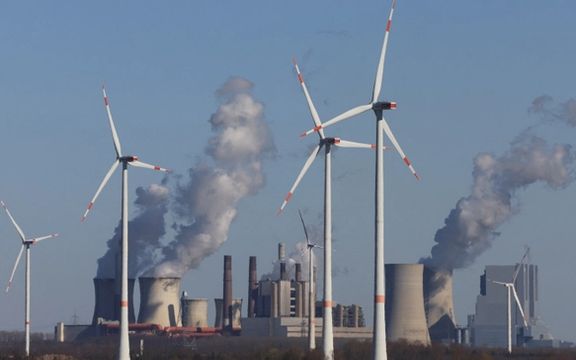
Iranian media and pundits have warned the government that delaying a nuclear agreement until winter to get concessions from energy starved Europe is a “mirage”.
In the past few weeks Mohammad Marandi, who acts as de facto spokesman for Iran's nuclear negotiating team, has been trying to link energy needs in Europe to ongoing talks for reviving the 2015 agreement, known officially as the Joint Comprehensive Plan of Action (JCPOA).
“Winter is Coming”, Marandi had tweeted August 21. His tweet depicted a photo of European leaders and the US President Joe Biden with the headline “Biden Discusses Iran nuclear talks with leaders of UK, France, and Germany”.
In an interview with Al Jazeera news channel on September 4, he said Iran “wants” a deal but Europeans “need” it. “Winter is approaching, and the EU is facing a crippling energy crisis,” he told Al Jazeera.
Prominent reformist journalist and politician, Abbas Abdi, has dubbed the policy of delaying an agreement in expectation of desperation in Europe as “Winter Mirage”.
In a commentary in Etemad newspaper Saturday, Abdi warned President Ebrahim Raisi not to be deceived by those who are against restoration of the JCPOA and claim that delaying an agreement until winter will secure a better deal for Iran. “But they know well that this is only and illusion and a lie,” he wrote.
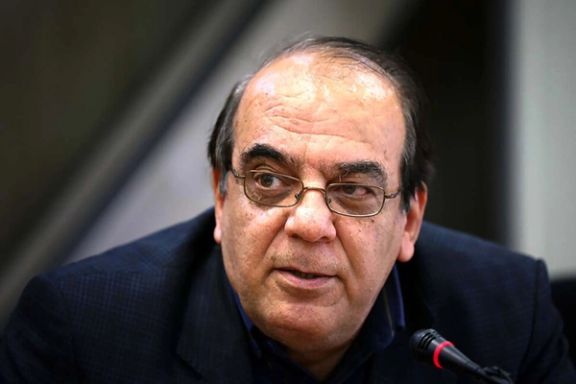
Abdi argued that the premise is completely wrong because Iran cannot supply natural gas to Europe even if they face a serious energy crisis. Due to lack of pipelines and LNG facilities Iran simply cannot export gas to Europe. Moreover, “In winters there is shortage of gas in Iran and they cut its supply to industries and even have difficulty in honoring their gas export commitments,” he said.
A report earlier this month based on official statistics revealed that Iranian industry lost $7 billion last year due to shortages of gas and electricity. To avoid public discontent, the government decided to deprive industries such as petrochemicals and steel of electricity in peak summer months and gas in the winter to supply homes, as the former administration had done.
Some pundits believe that the idea of delaying talks until winter originates from the political circle of former nuclear negotiator Saeed Jalili.
Journalist and political analyst Hadi Mousavi said Tuesday that Jalili and his associates recommend such strategies without any knowledge of the technical side of things at higher levels of the state. “Decisions are made on the basis of such plans because they are trusted.”
Iran holds the world’s second largest natural gas reserves, but sanctions have deprived the industry from foreign investment and technology to maintain and increase output.
Kayhan newspaper, which is known as the voice of the leader of the Islamic Republic of Iran, has also insisted in many editorials and commentaries in the past month that Iran is in no rush to restore the JCPOA and urged President Raisi to suspend the nuclear talks for two months and wait for a winter energy crisis in Europe.
Abdi responded to Kayhan in a tweet on August 27, while Iran Diplomacy news and analysis website in an article titled “A Threat That Won’t Work” on September 5 said the freezing European winter script will only work for Moscow, not Tehran, and delaying talks will not help getting concessions from Washington and its European allies.
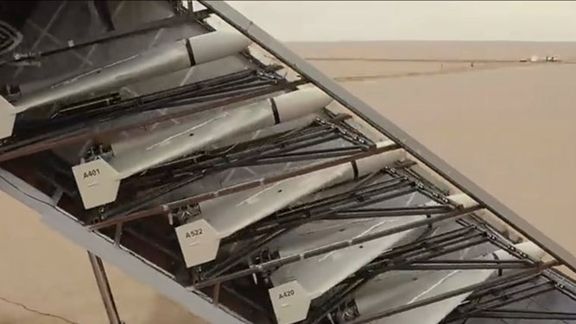
Ukraine's military said Tuesday for the first time that it downed an Iranian-supplied suicide drone used by Russia near Kupiansk amid Kyiv’s offensive through Russian lines in Kharkiv region.
The Ukrainian military’s Strategic Communications Directorate also published several images of the wreckage, which resembled a triangle, or delta-shaped drone flown by Iran known as the Shahed-136, a bomb-carrying drones or “loitering munitions” as experts call them.
In August, US-based think tank Institute for the Study of War quoted advisor to the Ukrainian President’s Office, Oleksiy Arestovych, as saying that Iran handed over 46 drones to Russia and that the Ukrainian government has already noted the use of these drones in combat in Ukraine.
Late in August, Yuliya Leonidivna Klymenko, a member of the liberal party at the Ukrainian parliament, told Iran International that Russia was buying 100 more drones from Iran in addition to the ones it had already bought from the Islamic Republic.
US Defense Department spokesperson Todd Breasseale said August 30 that Russia has faced "numerous failures" with Iranian-made drones, adding that the United States assessed that Russia had received the delivery of Mohajer-6 and Shahed-series unmanned aerial vehicles (UAVs) over several days this month.
On September 8, the United States imposed sanctions on an Iranian company for coordinating transport of Iranian drones to Russia as well as three companies involved in their production.
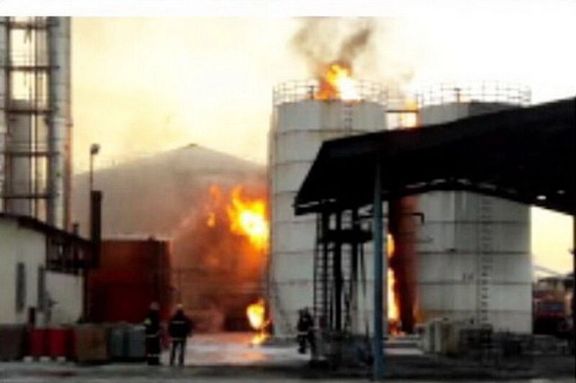
Iran said on Tuesday it brought under control a fire at Shadegan oilfield in southern Khuzestan province caused by an apparent act of sabotage, according to a company official.
Ghobad Nasseri, head of the Maroon Oil and Gas Production Company which exploits Shadegan, told state broadcaster that the fire broke out early on Tuesday after “unknown elements tampered with” one of some 20 active wells.
"The situation is completely under control and there is no cause for concern... The damage is being evaluated but the field will return to production shortly," he added.
The Shadegan field has an estimated total production capacity of about 70,000 barrels per day, according to one source or 110,000 according to another.
Earlier in the month, an explosion rocked Iran’s and Middle East’s oldest oil refinery in southwestern city of Abadan in the oil-rich province, which has been the scene of anti-government unrest in recent months.
This was the second incident at the Abadan refinery, which supplies around 25 percent of the country’s fuel needs, this year. In April, a section of the refinery caught fire but the blaze was contained with no fatalities or injuries.
Several explosions and fires in Iranian military and industrial sites − including pipelines and refineries − since mid-2020 have not been fully explained by authorities. However, they have blamed Israel for a series of spectacular sabotage attacks on nuclear facilities, including two explosions at Natanz uranium enrichment center. Israel has not taken responsibility for any incident.
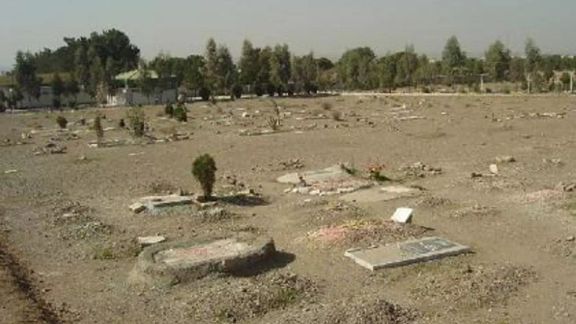
Amnesty International called on UN Human Rights Council Tuesday to make Iranian authorities stop concealing the mass graves of victims of the 1988 “prison massacres.”
The group also urged an international investigation into the extrajudicial execution and enforced disappearance of thousands of dissidents, which according to the group amount to ongoing crimes against humanity.
In recent months, Iranian authorities have erected new high concrete walls around the Khavaran cemetery outside the capital Tehran, where the remains of several hundred political dissidents executed in secret in 1988 are buried.
The construction has sparked serious concerns that the authorities would destroy or tamper with the mass grave site away from public view as the site is no longer visible from the outside and its entrance is guarded.
“The Iranian authorities cannot simply build a wall around a crime scene and think that all their crimes will be erased and forgotten. For 34 years, the authorities have systematically and deliberately concealed and destroyed key evidence that could be used to establish the truth about the scale of the extrajudicial executions carried out in 1988,” said Diana Eltahawy, a deputy director at Amnesty International. “This abomination must end once and for all, and the UN Human Rights Council must urgently establish an independent investigative mechanism to uncover the truth.”
Around 4,000 prisoners are believed to have been killed. Most victims were members or supporters of the exiled Mujahedin-e Khalq Organization (MEK) as well as Marxists and other members of other leftists groups.